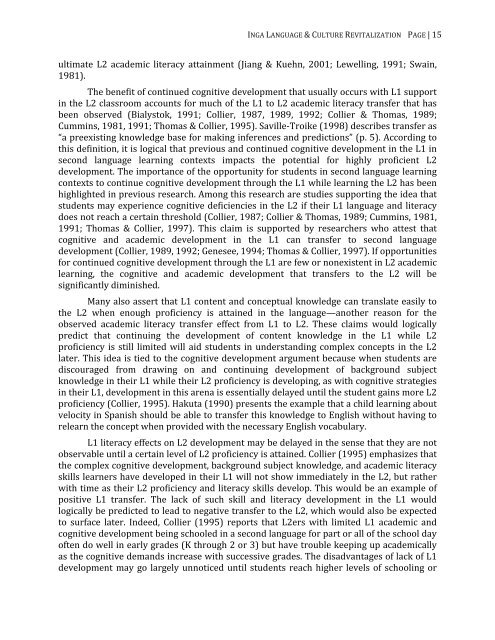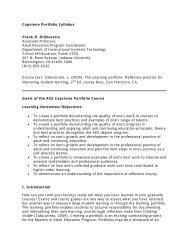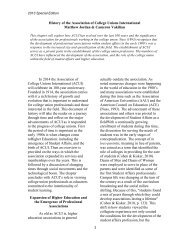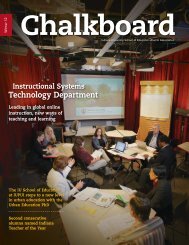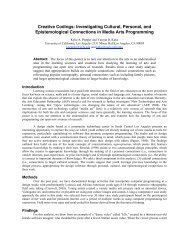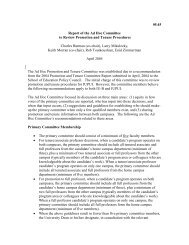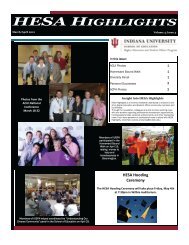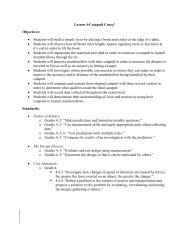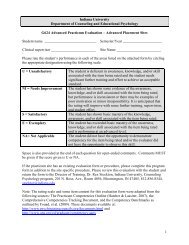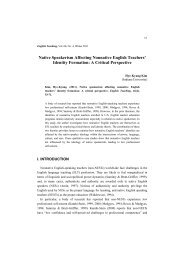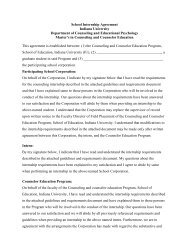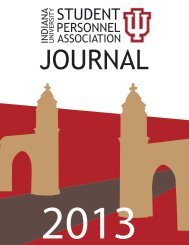Working Papers in Literacy, Culture, and Language Education
Working Papers in Literacy, Culture, and Language Education
Working Papers in Literacy, Culture, and Language Education
You also want an ePaper? Increase the reach of your titles
YUMPU automatically turns print PDFs into web optimized ePapers that Google loves.
INGA LANGUAGE & CULTURE REVITALIZATION PAGE | 15ultimate L2 academic literacy atta<strong>in</strong>ment (Jiang & Kuehn, 2001; Lewell<strong>in</strong>g, 1991; Swa<strong>in</strong>,1981).The benefit of cont<strong>in</strong>ued cognitive development that usually occurs with L1 support<strong>in</strong> the L2 classroom accounts for much of the L1 to L2 academic literacy transfer that hasbeen observed (Bialystok, 1991; Collier, 1987, 1989, 1992; Collier & Thomas, 1989;Cumm<strong>in</strong>s, 1981, 1991; Thomas & Collier, 1995). Saville‐Troike (1998) describes transfer as“a preexist<strong>in</strong>g knowledge base for mak<strong>in</strong>g <strong>in</strong>ferences <strong>and</strong> predictions” (p. 5). Accord<strong>in</strong>g tothis def<strong>in</strong>ition, it is logical that previous <strong>and</strong> cont<strong>in</strong>ued cognitive development <strong>in</strong> the L1 <strong>in</strong>second language learn<strong>in</strong>g contexts impacts the potential for highly proficient L2development. The importance of the opportunity for students <strong>in</strong> second language learn<strong>in</strong>gcontexts to cont<strong>in</strong>ue cognitive development through the L1 while learn<strong>in</strong>g the L2 has beenhighlighted <strong>in</strong> previous research. Among this research are studies support<strong>in</strong>g the idea thatstudents may experience cognitive deficiencies <strong>in</strong> the L2 if their L1 language <strong>and</strong> literacydoes not reach a certa<strong>in</strong> threshold (Collier, 1987; Collier & Thomas, 1989; Cumm<strong>in</strong>s, 1981,1991; Thomas & Collier, 1997). This claim is supported by researchers who attest thatcognitive <strong>and</strong> academic development <strong>in</strong> the L1 can transfer to second languagedevelopment (Collier, 1989, 1992; Genesee, 1994; Thomas & Collier, 1997). If opportunitiesfor cont<strong>in</strong>ued cognitive development through the L1 are few or nonexistent <strong>in</strong> L2 academiclearn<strong>in</strong>g, the cognitive <strong>and</strong> academic development that transfers to the L2 will besignificantly dim<strong>in</strong>ished.Many also assert that L1 content <strong>and</strong> conceptual knowledge can translate easily tothe L2 when enough proficiency is atta<strong>in</strong>ed <strong>in</strong> the language—another reason for theobserved academic literacy transfer effect from L1 to L2. These claims would logicallypredict that cont<strong>in</strong>u<strong>in</strong>g the development of content knowledge <strong>in</strong> the L1 while L2proficiency is still limited will aid students <strong>in</strong> underst<strong>and</strong><strong>in</strong>g complex concepts <strong>in</strong> the L2later. This idea is tied to the cognitive development argument because when students arediscouraged from draw<strong>in</strong>g on <strong>and</strong> cont<strong>in</strong>u<strong>in</strong>g development of background subjectknowledge <strong>in</strong> their L1 while their L2 proficiency is develop<strong>in</strong>g, as with cognitive strategies<strong>in</strong> their L1, development <strong>in</strong> this arena is essentially delayed until the student ga<strong>in</strong>s more L2proficiency (Collier, 1995). Hakuta (1990) presents the example that a child learn<strong>in</strong>g aboutvelocity <strong>in</strong> Spanish should be able to transfer this knowledge to English without hav<strong>in</strong>g torelearn the concept when provided with the necessary English vocabulary.L1 literacy effects on L2 development may be delayed <strong>in</strong> the sense that they are notobservable until a certa<strong>in</strong> level of L2 proficiency is atta<strong>in</strong>ed. Collier (1995) emphasizes thatthe complex cognitive development, background subject knowledge, <strong>and</strong> academic literacyskills learners have developed <strong>in</strong> their L1 will not show immediately <strong>in</strong> the L2, but ratherwith time as their L2 proficiency <strong>and</strong> literacy skills develop. This would be an example ofpositive L1 transfer. The lack of such skill <strong>and</strong> literacy development <strong>in</strong> the L1 wouldlogically be predicted to lead to negative transfer to the L2, which would also be expectedto surface later. Indeed, Collier (1995) reports that L2ers with limited L1 academic <strong>and</strong>cognitive development be<strong>in</strong>g schooled <strong>in</strong> a second language for part or all of the school dayoften do well <strong>in</strong> early grades (K through 2 or 3) but have trouble keep<strong>in</strong>g up academicallyas the cognitive dem<strong>and</strong>s <strong>in</strong>crease with successive grades. The disadvantages of lack of L1development may go largely unnoticed until students reach higher levels of school<strong>in</strong>g or


